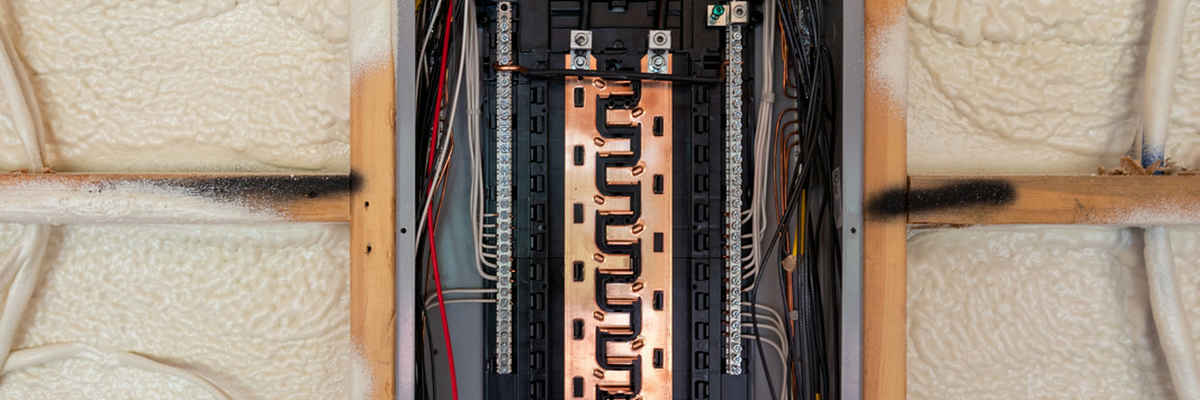What are the benefits of spray foam insulation?
Spray foam insulation is made with expanded (foamed)polyurethane material that quickly expands to fill the contours of whatever structure it's applied to. It fully fills cavities, offer unparalleled protection against moisture and humidity, do not mold or mildew like traditional materials because they're injected instead of bathed in a vapor-permeable bedding material. Closed cell foams are also long lasting and unaffected by exposure to oils, paints, fuels or anything else that would destroy other foam insulation products.
Spray polyurethane foam insulation is not only the most effective type of insulation but also the most efficient due to its ability to fill even the tiniest of cavities, gaps and cracks. Spray foams are able to block out water vapor, insulate against noise efficiently, fill any kind of irregular space or surface. Closed cell foam insulation does not absorb moisture and it doesn't lose density due to temperature fluctuations.
Due to the way it expands, the number of cavities or void spaces in your home can be greatly reduced compared to other insulation products. Spray foam insulation is used in homes under construction as well as older homes because it will seal anything that has an air leak .
In terms of the performance and cost, closed cell spray insulation is just as effective as fiberglass batt insulation but much more efficient because it fills all cavities completely. The R-value that a foam insulation has depends on the type of foam used to fill it which can either be low density or high density. Spray foam does not have an R-value per inch like fiberglass, it has an R-value per square foot instead. When you purchase closed cell spray foam insulation you'll get approximately 5 inches to 6 inches in an 8 x10 bedroom which is about R20.
Call Now - (657) 500-3661
Get Your Free Quote!

How does spray foam insulation work?
Spray foam insulation is either applied to the inside or outside of your house, in the form of a liquid which expands in volume by up to 400 times when it reacts with air. This process creates small bubbles in the foam which provides lots of space for air thereby creating an excellent thermal insulator. It needs to be heated with special equipment before it can be applied.
Spray foam insulation reduces time for hot water through pipes (because they are also insulated), saves on energy bills because you don't need to turn up the thermostat as high, has superior sound-damping qualities and promotes healthier indoor air quality by preventing moisture transference from one side of membrane wall construction to another.
There are three basic types of spray foam insulation: open cell, closed cell and low density. Open-cell spray is most similar to traditional fiberglass insulation in that it offers little to no resistance against air but has an R-value of around 3 per inch making it effective for hot climates.
Closed-cell foam is the opposite of open-cell in that it offers high resistance to air flow and has an R-value of around 4.5 per inch. Low-density spray foam insulation, though slightly more expensive than traditional fiberglass insulation, is effective for both hot and cold climates because of its reduced weight and a higher R-value of up to 7 per inch. Air sealing also plays a role in energy efficiency for spray foam insulation because of its high resistance to air flow. This means that it can help resolve issues of drafts coming through walls which are not properly sealed, preventing the loss of heated or cooled air within the house.
With their ability to resist heat transfer and reduce sound transfer while providing an effective air barrier, spray foam insulation can make a home more comfortable and energy efficient.
Call Us Now - (657) 500-3661
